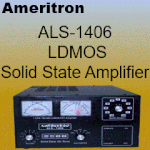Incentive Licensing Retrospective
Discussion in 'Amateur Radio News' started by K3UD, Dec 21, 2005.
- Thread Status:
- Not open for further replies.
Page 9 of 31
Page 9 of 31
- Thread Status:
- Not open for further replies.










